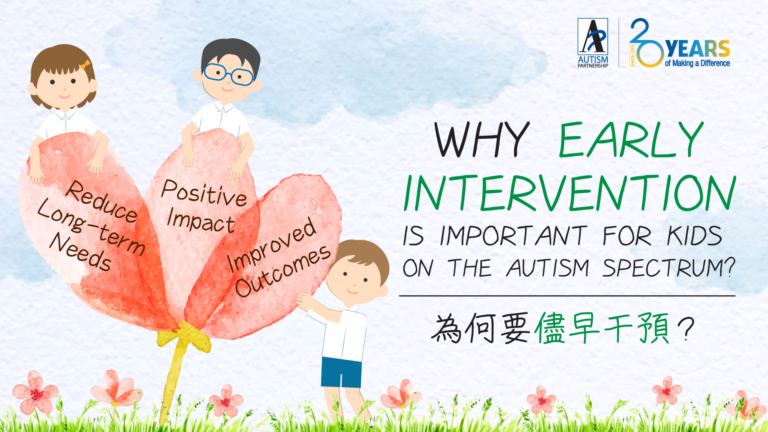
Children with Autism Spectrum Disorder (ASD) often exhibit challenging behavioral problems such as tantrums, aggression, and non-compliance which are difficult to handle for school teachers and parents. What can teachers and parents do? Here are some tips to help you manage challenging behaviors:


You can start trying the above tips. For children with autism, it will need some practices and time to overcome challenging behavior. However, you are recommended to seek professional advice and training.
Dr. David Fischer received a doctoral degree in Clinical Psychology from Rutgers University, USA, advised by Dr. Sandra Harris. Since 1999, he was worked in the field of Applied Behavior Analysis and with individuals diagnosed with a developmental disability. He completed his pre-doctoral internship and post-doctoral fellowship at the Marcus Institute in Atlanta, Georgia working in the severe behavior unit, short-term-out-patient clinic, feeding disorders unit, and early intervention clinic. From 2007 – 2011, he trained public school teachers to instruct and manage the behavior of their students diagnosed with Autism spectrum disorder. He also was the clinical coordinator of the Asperger’s College Program, which provides support services to Rutgers students diagnosed with Asperger’s Disorder.

Every little life is a special present for a family. From the time a baby is born, parents journey through lots of highs and lows, wishing for their child to grow up with a big smile, make great friends, find their own way in a job they love, and create a happy family. However, for […]

Parenthood is a journey filled with unexpected twists and turns, challenges, and moments of profound joy. For Adam’s father, the discovery that his son, Adam, was on the autism spectrum marked the beginning of a unique chapter in their lives. This is the story of a father’s realization, acceptance, and the unconditional love and strength […]

Autism Spectrum disorder can be diagnosed as early as 18 months. Research shows strong evidence on how effective Applied Behavior Analysis (ABA) can help children with Autism. It helps to deal with children’s challenging behaviors such as inattention, aggression, self-stimulation, etc. Howard, et al (2005) conducted a study to compare the effectiveness of 3 treatment […]
Please share to let more people learn about ASD and ABA therapy:
AP holds the belief that with quality Autism Partnership Method (APM) treatment, individuals with autism should reach their fullest potential and achieve the greatest degree of independence and highest quality of life possible.
Sign up now to get ABA and Autism related news delivered to your inbox. Enter your email to get started
Hong Kong Center
Kowloon Center

All information received will always remain confidential. We will contact you as soon as we review your message. Thanks